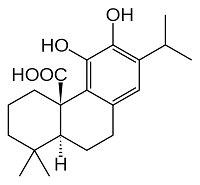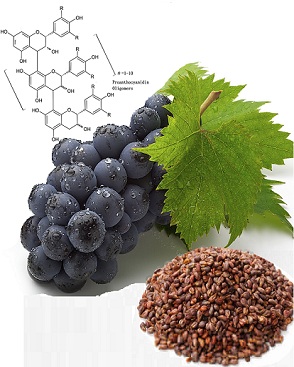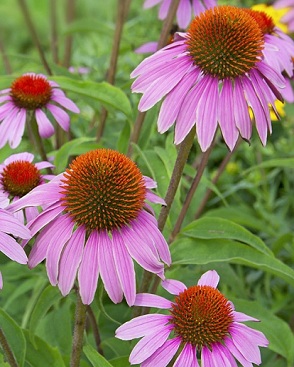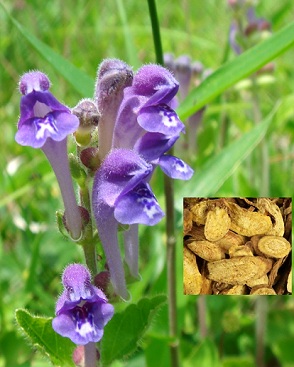- Plant-Based Protein
- Natural Plant Flavours
- Food and Dietary Supplement Ingredients
- Fruit Juice Powder
- Animal Nutrition Ingredients
- Water Soluble Ingredients
- Cosmetic Ingredients
- Unveiling the Therapeutic Potential of Rabdosia Rubescens: A Comprehensive Review
- What are the medicinal properties of Rabdosia Rubescens?
- Nutritional value of Orange Juice Powder compared to fresh orange juice.
- Processing Conditions and Nutritional Value of Orange Juice Powder
- Exploring the Versatility of Herbal Extracts in Food Flavors
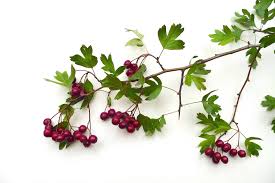
What are the health benefits of hawthorn leaf?
Welcome to our blog! Today, we are diving into the world of hawthorn leaf and uncovering its incredible health benefits. Whether you're a fan of herbal remedies or simply curious about natural alternatives, hawthorn leaf is definitely worth exploring.
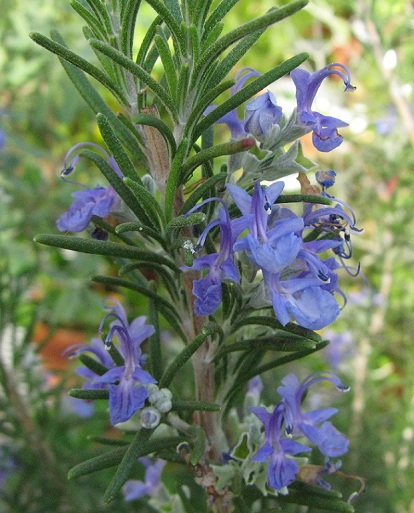

Rosemary Extract and benefits,side effect, uses,dosage
Rosemary Extract is an herbal supplement that can be used in treatment for bronchial asthma, peptic ulcer, prostate disorder, inflammatory disease, liver toxicity, atherosclerosis, stroke, ischemic heart disease, cataracts, leukemia, sperm motility, anticancer and antitumor activity, to enhance mental function and memory, dyspepsia, high blood pressure, rheumatism, promotes menstrual flow, antibacterial, antifungal, and as an antiviral agent.
Rosemary Extract
Rosemary is an herbal supplement that can be used in treatment for bronchial asthma, peptic ulcer, prostate disorder, inflammatory disease, liver toxicity, atherosclerosis, stroke, ischemic heart disease, cataracts, leukemia, sperm motility, anticancer and antitumor activity, to enhance mental function and memory, dyspepsia, high blood pressure, rheumatism, promotes menstrual flow, antibacterial, antifungal, and as an antiviral agent.
Rosemary is approved for dyspepsia, hypertension, alopecia and rheumatism by the German Commission E.
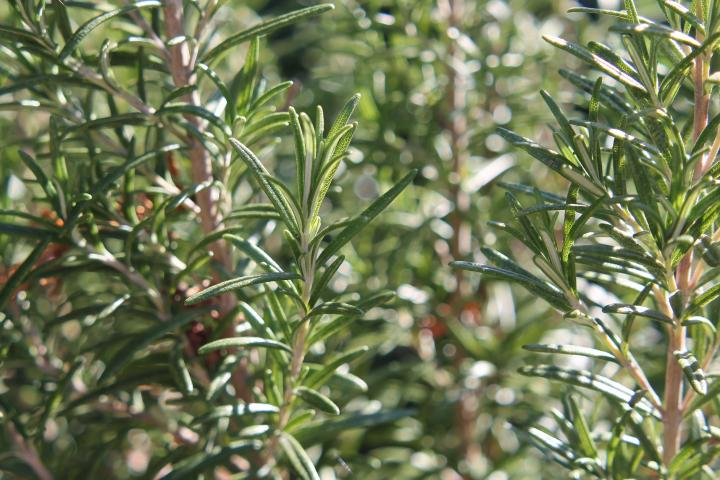
What you may get from us: If you're developing a product that contains plant active ingredients from Rosmarinus officinalis.I think you can find the information or products you need here.
Simple production process in our factory:After the plant is collected, raw material will be processed by solvent extraction, separation and purification, filtration, concentration, drying and other steps to form the final products. We may also design a prouction process based on your special requirements.
Through the physical and chemical processes, those compunds you don't want was removed, and the compunds preferred was accumulated. Which make the products achieve the best effects.
How to use Rosemary extract powder:What you need is just use our products to formulate your products. It can be mixed with your other ingredients directly to make premix products. It can also be directly used for filling capsules or making tablets. And if your dosage form is tincture or solution, It can also be suitable. Easy to say, our products are ready for Formula products.
|
Rosemary Extract |
||
|
CAS No. |
84604-14-8 |
|
|
Appearance |
powder |
|
|
Color |
Greenish Yellow |
|
|
Partical size |
Normally pass through 80mesh |
|
|
Pack size |
25 kgper paper drum |
|
|
Purity of active compunds |
5%-30%carnosic acid 5%-20%rosmarinic aic |
By HPLC |
|
For pricing or more information, please call 86 29 88444632 or send an email to Sales@nutraherbsource.com
|
||
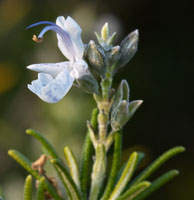
General Information
Common Names of raw material: Compass Plant, Compass Weed, Polar Plant, Romero, Rosmarinus coronarium
Latin Names: Rosmarinus officinalis
Plant Description
Forms range from upright to trailing; the upright forms can reach 1.5 m (5 ft) tall, rarely 2 m (6 ft 7 in).The leaves are evergreen, 2–4 cm (0.8–1.6 in) long and 2–5 mm broad, green above, and white below with dense short woolly hair.Flowering, very common in a mature and healthy specimen, blooms in summer in the north; but can be everblooming in warm-winter climates and is variable in color, being white, pink, purple, or blue.
Constituents ofRosemary
Rosemary contains a number of potentially biologically active compounds, including antioxidants such as carnosic acid, carnosol and rosmarinic acid. Other bioactive compounds include camphor (up to 20% in dry rosemary leaves), caffeic acid, ursolic acid, betulinic acid, rosmaridiphenol, and rosmanol.
Rosmarinic acid, C18H16O8, is a natural polyphenol antioxidant carboxylic acid. Chemically, rosmarinic acid is an ester of caffeic acid with 3,4-dihydroxyphenyl lactic acid. It is is soluble in water.
|
Rosmarinic acid |
Carnosic acid |
||
|
|
|
||
|
537-15-5 |
3650-09-7 |
||
|
Molecular formula |
C18H16O8 |
Molecular formula |
C20H28O4 |
|
Molar mass |
360.31 g/mol |
Molar mass |
332.43 g/mol |
Suggested Properties
Rosmarinic acid has a number of interesting biological activities, e.g. antiviral, antibacterial, antiinflammatory and antioxidant. The presence of rosmarinic acid in medicinal plants, herbs and spices has beneficial and health promoting effects. In plants, rosmarinic acid is supposed to act as a preformed constitutively accumulated defense compound.
Traditional uses
Rosemary is a widely used culinary spice. Tradition holds that rosemary will grow only in gardens of households where the "mistress" is truly the "master." The plant has been used in traditional medicine for its astringent, tonic, carminative, antispasmodic, and diaphoretic properties. Rosemary is one of the oldest known medicinal herbs, used centuries ago to enhance mental function and memory. Extracts and the volatile oil have been used to promote menstrual flow and as abortives. Rosemary extracts commonly are found as cosmetic ingredients and a lotion of the plant is said to stimulate hair growth and prevent baldness.
HealthBenefits ofRosemary extract
Carnosic acid and carnosol are phenolic diterpenes present in Rosmarinus officinalis (Rosemary). Rosemary Extracts exhibit anti-inflammatory properties. Recently, Scientists found that Carnosic acid and Carnosol activate the peroxisome proliferator-activated receptor gamma, implying an anti-inflammatory potential on the level of gene regulation. Carnosic acid and Carnosol inhibit the formation of pro-inflammatory leukotrienes in intact PMNL. Both Carnosic acid and Carnosol potently antagonise intracellular Ca(2+) mobilisation induced by a chemotactic stimulus, and Carnosic acid and Carnosol attenuate formation of reactive oxygen species and the secretion of human leukocyte elastase. Together, our findings provide a pharmacological basis for the anti-inflammatory properties reported for Carnosic acid and Carnosol.
The results of a study suggest that carnosic acid, found in rosemary, may shield the brain from free radicals, lowering the risk of strokes and neurodegenerative diseases like Alzheimer's and Lou Gehrig's.
Rosemary may have some anti-carcinogenic properties. A study where a powdered form of rosemary was given to rats in a measured amount for 2 weeks showed reduction in the binding of a certain carcinogen by 76%, and greatly reduced the formation of mammary tumors.
Rosemary probably became known as the herb of remembrance because of its stimulating effects on the mind. It's a warming, stimulating herb that increases the flow of oxygen-rich blood to your head, which may be one reason why it's such a good memory booster, but that's not all. The compounds in rosemary herb are said to prevent the breakdown of acetylcholine, which is a chemical that induces the brain cells that are responsible for memory and reasoning to communicate with one another.
Miscellaneous uses
Rosemary is a known antimicrobial agent. The powdered leaves are used as an effective natural flea and tick repellent. Rosemary oil possesses marked antibacterial, antifungal, and antiviral properties. Rosemary oil was found to be most active against "meat-spoiling" bacteria. A report on the use of rosemary to treat head lice found it to be ineffective.
Precautions or side effects
Pregnancy and breast-feeding: Rosemary is POSSIBLY UNSAFE when taken by mouth in medicinal amounts. Rosemary might stimulate menstruation or affect the uterus, causing a miscarriage. Not enough is known about the safety of applying rosemary to the skin during pregnancy. If you are pregnant, it's best to avoid rosemary in amounts larger than food amounts.
If you are breast-feeding, also steer clear of rosemary in medicinal amounts. Not enough is known about what effects it might have on the nursing infant.
Aspirin allergy. Rosemary contains a chemical that is very similar to aspirin. This chemical, known a as salicylate, may cause a reaction in people who are allergic to aspirin.
Bleeding disorders: Rosemary might increase the risk of bleeding and bruising in people with bleeding disorders. Use cautiously.
Seizure disorders: Rosemary might make seizure disorders worse. Don't use it.
Recommended dosage
Rosemary leaf was approved for dyspepsia, high blood pressure, and rheumatism by the German Commission E at doses of 4 to 6 g/day.
- Prev:Aloe extract powder aloin/Diacerein and benefits, uses,side effect, dosage
- Next: Olive Leaf Extract and benefits,side effect, uses Natural Antioxidant




